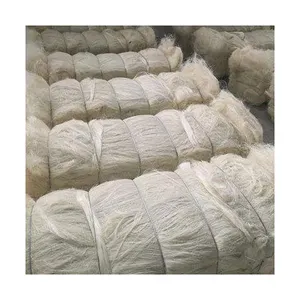

Wrapping Paper Eco Friendly Abaca Fiber Flower Wrapping Paper All Natural Materials Biodegradable 50x70cm


custom made natural abaca fiber cut in size 5 cm suitable for spinners and for technical, educational applications

















Abaca fiber, extracted from the leaves of the abaca plant, stands as a testament to natural durability and sustainability. This eco-friendly material, primarily sourced from the Philippines, has gained prominence for its robust and flexible nature. Abaca fiber products range from industrial to artisanal applications, showcasing the fiber's adaptability.
Abaca fiber is celebrated for its extensive use in various domains. Abaca rope and abaca twine are known for their tensile strength, making them ideal for maritime, agricultural, and packaging industries. In the realm of creative arts, abaca textile and abaca weaving are prized for their texture and natural aesthetics, leading to the production of abaca bags and garments. Moreover, abaca paper pulp is a sought-after material for specialty papers, thanks to its long fibers that contribute to the paper's strength and durability.
Abaca fiber is distinguished by its natural properties. It is inherently resistant to saltwater damage, making it a preferred material for marine applications. The fibers are also known for their ability to absorb and retain dyes, which is beneficial for the textile industry. When it comes to environmental impact, abaca is a renewable resource; the abaca plant can be harvested repeatedly from the same stalk, providing a sustainable material source without the need for frequent replanting.
The advantages of abaca fiber are manifold. Its natural resistance to deterioration and flexibility allows for a wide range of uses, from reinforcing composite materials to crafting fine abaca sinamay fabrics. The fiber's ecological footprint is minimal, as abaca plants contribute to soil conservation and carbon sequestration. Furthermore, the cultivation of abaca supports rural economies, particularly in regions where the abaca tree thrives.
Abaca's role in sustainable practices is increasingly significant. The production of abaca paper and abaca pulp offers an eco-friendly alternative to wood-based paper, reducing the demand for timber and helping to preserve forests. Additionally, the use of abaca material in products like abaca silk and textiles promotes the adoption of natural fibers over synthetic ones, aligning with global efforts to reduce plastic pollution.
In conclusion, abaca fiber's multifaceted applications and benefits make it a valuable commodity on Alibaba.com. Its contribution to sustainable development and the global economy underscores the importance of natural fibers in today's market. As the demand for environmentally responsible materials grows, abaca fiber's role is set to expand, paving the way for innovative uses and products.